Posts Tagged ‘Kachin Independence Army’ (106 found)
New Special Rapporteur, Familiar Human Rights Abuses
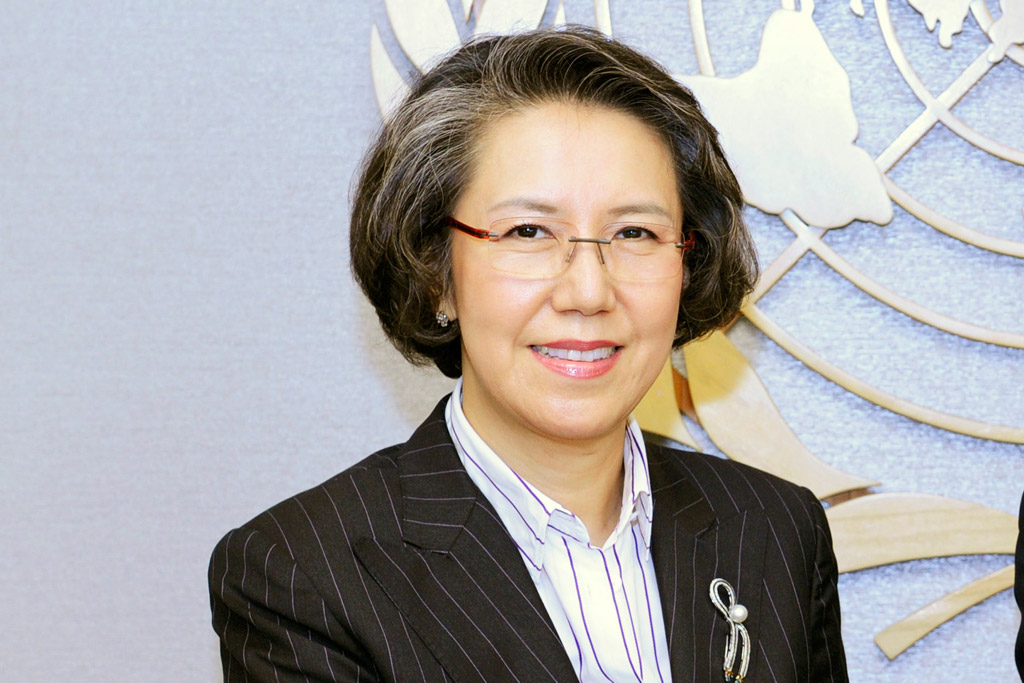 The new Special Rapporteur on the situation of human rights in Burma, Ms. Yang Hee Lee, concluded her first visit to the country on 27 November, and unsurprisingly, found the human rights situation troubling, warning of the potential of backtracking on initial reforms, an analysis that resonates with many Burma followers. She outlined her initial findings at Rangoon airport in a statement just as she finished her mission, highlighting the shrinking of democratic space, the ongoing religious violence and discrimination, the deteriorating humanitarian conditions for internally displaced persons (IDPs) – especially Muslims – in Arakan State, the severe human rights abuses in Kachin State, the urgent necessity for legislative reform and the rule of law, the lack of involvement of women in both the peace process and governance, the exclusion of local people in large scale development projects and the impact of such projects on vulnerable communities, and the continuing incarceration of political activists, among other issues.
The new Special Rapporteur on the situation of human rights in Burma, Ms. Yang Hee Lee, concluded her first visit to the country on 27 November, and unsurprisingly, found the human rights situation troubling, warning of the potential of backtracking on initial reforms, an analysis that resonates with many Burma followers. She outlined her initial findings at Rangoon airport in a statement just as she finished her mission, highlighting the shrinking of democratic space, the ongoing religious violence and discrimination, the deteriorating humanitarian conditions for internally displaced persons (IDPs) – especially Muslims – in Arakan State, the severe human rights abuses in Kachin State, the urgent necessity for legislative reform and the rule of law, the lack of involvement of women in both the peace process and governance, the exclusion of local people in large scale development projects and the impact of such projects on vulnerable communities, and the continuing incarceration of political activists, among other issues.
We welcome Ms. Lee’s open and honest discussion of the term “Rohingya” and her pledge to be guided by international human rights law as regards the use of this term. This was despite the insistence of government officials not to use the word “Rohingya” throughout her trip to Arakan State. On the basis of this principled stance, we are reassured that Ms. Lee will not flinch from using the term when appropriate in the future. After visiting two camps for IDPs, one for Arakan Buddhists and one for Rohingya Muslims, Ms. Lee was troubled by both the terrible conditions in the camps and the lack of humanitarian access that is resulting in people dying due to insufficient medical assistance. She also acknowledged that this situation is “undeniably worse” in the camp for Rohingya. While she did not explicitly state that this is a situation engineered and maintained by the authorities, it is obvious that the unequal treatment of Buddhist and Muslim IDPs is a deliberate policy by the government that further punishes the Rohingya simply due to their ethnicity.
• • •Statement of the Special Rapporteur on the Situation of Human Rights in Myanmar
Introduction:
Good evening and thank you all for coming today. I have just concluded my first official ten- day mission as Special Rapporteur on the situation of human rights in Myanmar. The objective of my visit was to assess the human rights situation in Myanmar through a better understanding of the realities on the ground. Accordingly, I sought to engage constructively with a broad spectrum of stakeholders, including Government officials, political, religious and community leaders, civil society representatives, as well as victims of human rights violations and members of the international community. I was pleased to have had a frank and open exchange of views on a range of matters related to my mandate. And I am grateful that many were so forthcoming in their views on sensitive issues […]
• • •Brang Yung Detention Illegal Says United Nations
The United Nations Working Group on Arbitrary Detention has issued a ruling that the detention of the ethnic Kachin farmer Brang Yung is illegal and called for his immediate release, and for adequate reparation.
Brang Yung was arrested in June 2012 by the military-backed government in Burma. He was charged under Article 17/1 of the Unlawful Association Act, and he is serving a 21 year prison sentence in Myitkyina Prison […]
• • •Myanmar: Comprehensive Solutions Needed for Recent and Long-term IDPs Alike
IDMC estimates that there are up to 642,600 internally displaced people (IDPs) in Myanmar, forced to flee their homes by armed conflict and inter-communal violence. The figure includes up to 400,000 people living in protracted displacement as a result of conflict in the south-east of the country – in southern Shan, Kayah, Kayin and Mon states and Bago and Tanintharyi regions – and 98,000 displaced by conflict in Kachin and northern Shan states since 2011. It also includes around 140,000 people displaced by inter-communal violence in Rakhine state since 2012, and more than 5,000 who fled their homes in Mandalay region in 2013. Disasters brought on by natural hazards and forced evictions linked to land grabs and the exploitation of natural resources have caused further displacement, including in areas where people have already fled conflict and violence.
Landmines and unexploded ordnance constitute a significant obstacle to IDPs’ return in Kachin, northern Shan and the south-east. Internally displaced women and girls in Kachin and northern Shan face the threat of sexual violence. Muslim IDPs in Rakhine are confined to camps, where they have little or no access to health care, education or livelihoods, and shelters are in need of maintenance in Rakhine, Kachin and northern Shan […]
• • •Trafficking in Persons Report 2014
Burma is a source country for men, women, and children subjected to forced labor, and for women and children subjected to sex trafficking in other countries. Burmese men, women, and children who migrate for work abroad, particularly to Thailand and China, are subjected to conditions of forced labor or sex trafficking in these countries. Poor economic conditions within Burma continue to drive large numbers of Burmese men, women, and children to migrate through both legal and illegal channels for work primarily in East Asia, as well as destinations including the Middle East, South Asia, and the United States. Men are most often subjected to forced labor, often in the fishing, manufacturing, and construction industries abroad. Women and girls are primarily subjected to sex trafficking or domestic servitude. The large numbers of migrants seeking work in Thailand’s fishing and domestic work sectors do so outside formal channels. Some Burmese men in the Thai fishing industry are subjected to debt bondage, passport confiscation, or false employment offers; some are also subjected to physical abuse and are forced to remain aboard vessels in international waters for years […]
• • •Three Years of Suffering for the Kachin People, How Much Longer?
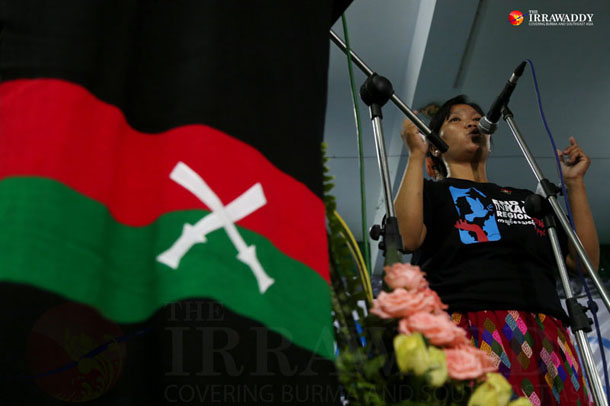 As we pass the marking of the third year of the conflict in Kachin and northern Shan State between the Kachin Independence Army (KIA) and the Burma Army, it is difficult not feel pessimistic. A report released by Fortify Rights, a non-profit human rights organization based in Southeast Asia, highlights the continuing torture of Kachin civilians by Burmese security forces, while Kachin Women’s Association Thailand (KWAT) expressed their concern at the increasing offensives on KIA positions. Peace talks have occurred sporadically in an attempt to resolves the conflict, but still, all we see is the continuing persecution of Kachin communities.
As we pass the marking of the third year of the conflict in Kachin and northern Shan State between the Kachin Independence Army (KIA) and the Burma Army, it is difficult not feel pessimistic. A report released by Fortify Rights, a non-profit human rights organization based in Southeast Asia, highlights the continuing torture of Kachin civilians by Burmese security forces, while Kachin Women’s Association Thailand (KWAT) expressed their concern at the increasing offensives on KIA positions. Peace talks have occurred sporadically in an attempt to resolves the conflict, but still, all we see is the continuing persecution of Kachin communities.
The Fortify Rights report, ‘Myanmar: End Wartime Torture in Kachin State and Northern Shan State’ demonstrates how torture, both physical and mental, has been systemically inflicted upon Kachin civilians thought to be associated with the KIA. Fortify Rights believes that this constitutes war crimes and crimes against humanity. The perpetrators include not just the Burma Army, but also military intelligence and the police force. Beatings during interrogation, cutting off blood circulation, deprivation of food, drink, and sleep, sexual assault, and stabbings among other methods were all documented. Mental torture was also used, such as forcing prisoners to dig graves and telling them it is their own, having to drink from pools of their own blood and being put in execution style positions. This report comes just a few months after the Women’s League of Burma released, ‘Same Patterns, Same Impunity’ that exposes the systematic use of rape and sexual assault as a weapon of war by the Burma Army in ethnic areas […]
• • •Myanmar: End Wartime Torture in Kachin State and Northern Shan State
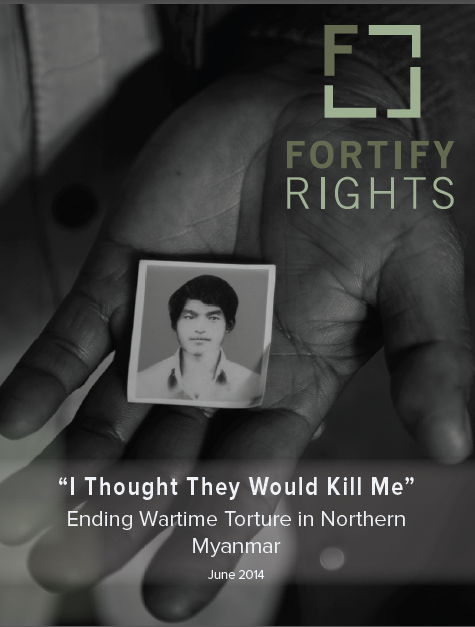 (Yangon)— For the past three years, Myanmar authorities have systematically tortured Kachin civilians perceived to be aligned with the Kachin Independence Army (KIA), Fortify Rights said in a new report released today. Fortify Rights believes these abuses constitute war crimes and crimes against humanity. The government of Myanmar should intervene immediately to end the use of torture in the conduct of the ongoing war in Kachin State and northern Shan State, and it should credibly investigate and prosecute members of the Myanmar Army, Myanmar Police Force, and Military Intelligence who are responsible for the serious crimes described in this report.
(Yangon)— For the past three years, Myanmar authorities have systematically tortured Kachin civilians perceived to be aligned with the Kachin Independence Army (KIA), Fortify Rights said in a new report released today. Fortify Rights believes these abuses constitute war crimes and crimes against humanity. The government of Myanmar should intervene immediately to end the use of torture in the conduct of the ongoing war in Kachin State and northern Shan State, and it should credibly investigate and prosecute members of the Myanmar Army, Myanmar Police Force, and Military Intelligence who are responsible for the serious crimes described in this report.
The 71-page report, “I Thought They Would Kill Me”: Ending Wartime Torture in Northern Myanmar, describes the systematic use of torture and other cruel, inhuman, and degrading treatment or punishment (“ill treatment”) of more than 60 civilians by Myanmar authorities from June 2011 to April 2014. Members of the Myanmar Army, Myanmar Police Force, and Military Intelligence deliberately caused severe and lasting mental and physical pain to civilians in combat zones, […]
• • •Myanmar: Three Years on, Conflict Continues in Kachin State
Three years after the Myanmar armed forces resumed offensive military operations in Kachin state, Amnesty International joins human rights defenders and civil society organizations to call for an immediate end to violations of international humanitarian law and human rights law. The continued fighting and reports of crimes under international law and human rights violations allegedly committed by the Myanmar Army raise serious questions about commitment to human rights reforms in the country and threaten ongoing efforts to negotiate a nationwide ceasefire […]
• • •55 Organisations Worldwide Call for Action for Peace on Kachin Anniversary
Three years ago today, the Burma Army broke a 17-year ceasefire with the Kachin Independence Army (KIA) and unleashed a major new military offensive against the Kachin people. Since 9 June 2011, over 120,000 Kachin people have been displaced, forced to flee their homes. At least 200 villages have been destroyed. A humanitarian emergency unfolded, with a desperate need for shelter, food and medical care. As the Kachin Peace Talk Creation Group has said, “the impact of the war this time has been enormous. Many have lost land, plantations […]
• • •Humanitarian Crisis Update for Kachin State and Northern Shan State
It has been more than 30 months since armed clashes between the Myanmar government armed forces and the Kachin Independence Army (KIA) forces were first rekindled in 2011, resulting in more than 120,000 IDPs. Despite the ongoing peace negotiations, skirmishes between the Myanmar government armed forces and the Kachin Independence Army (KIA) have been increasing […]
• • •
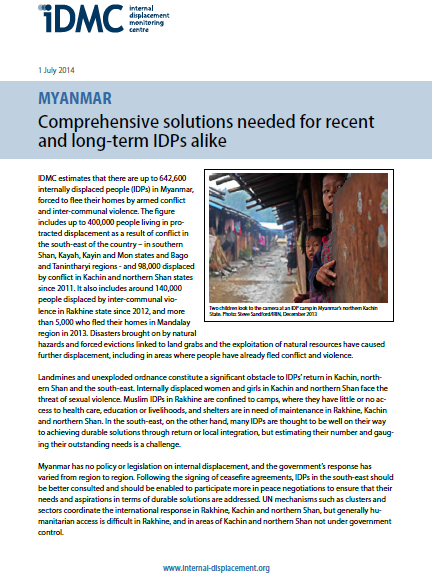
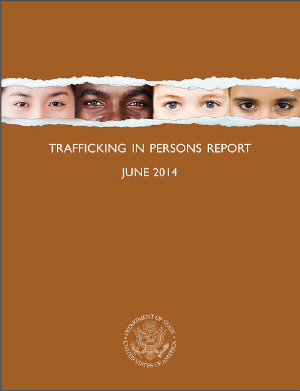








 All posts
All posts